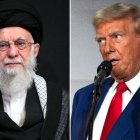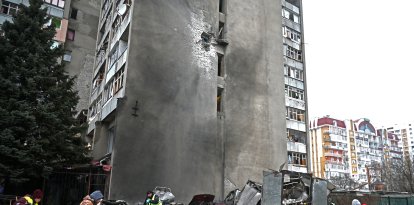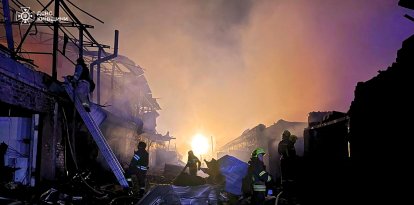The Kremlin assured that Iran has not asked Russia for military assistance to confront Israel
Although the Russian regime keeps a close eye on Israeli attacks, senior officials admit they are unable to curb Prime Minister Benjamin Netanyahu's actions.

Putin in the Kremlin/Alexander Kazarov.
Russia does not plan to offer military aid to Iran amid rising tensions with Israel and says Tehran has not requested any backing either. So said sources close to the Kremlin, quoted by Bloomberg, who also acknowledge Moscow's limited ability to influence a conflict that threatens to further destabilize the Middle East.
Although the Kremlin keeps a close eye on Israeli attacks, senior Russian officials admit that they are unable to curb the actions of Prime Minister Benjamin Netanyahu. The same sources explained that Moscow would also be unable to play a mediating role if the goal of the offensive is regime change in Tehran.
No room for mediation

Politics
Trump's harsh threat to the Iranian regime: ‘Our patience is wearing thin’
Leandro Fleischer
Russia holds dialogue with key leaders
President Donald Trump held a nearly hour-long telephone conversation with Vladimir Putin to address the gravity of the situation. During the call, the Russian leader warned of the "unpredictable consequences" that a regional war could have for the stability of the Middle East. Putin also communicated with Netanyahu and Iranian President Masoud Pezeshkian in an attempt to contain the crisis before Israeli attacks disrupted nuclear negotiations between Washington and Tehran.
Kremlin spokesman Dmitry Peskov said Tuesday that "the situation is currently on a path of further galloping escalation" and stressed that Israel has shown little willingness to consider mediation options or a peaceful way out of the conflict.

Politics
With Iran and Ukraine as topics of conversation, Trump received birthday call from Putin
Joaquín Núñez
Geopolitical implications and calculations in Moscow.
Despite the risks, some analysts in Moscow believe that the conflict could generate geopolitical benefits for Russia in the short term. A war in the Middle East could divert international attention away from Ukraine, while instability would raise oil prices, bolstering Russian energy revenues.
"The sheer aggressiveness of Israel’s strikes will weaken the West’s moral case against Russia," Ruslan Pukhov, a defense expert, opined. Moreover, a direct conflict with Iran could force the United States to redirect military resources from Ukraine to the Middle East.
Still, the Kremlin is acting cautiously. For now, Moscow prioritizes protecting its strategic interests in Iran without getting directly involved in a conflict that could spill over regional boundaries.

























